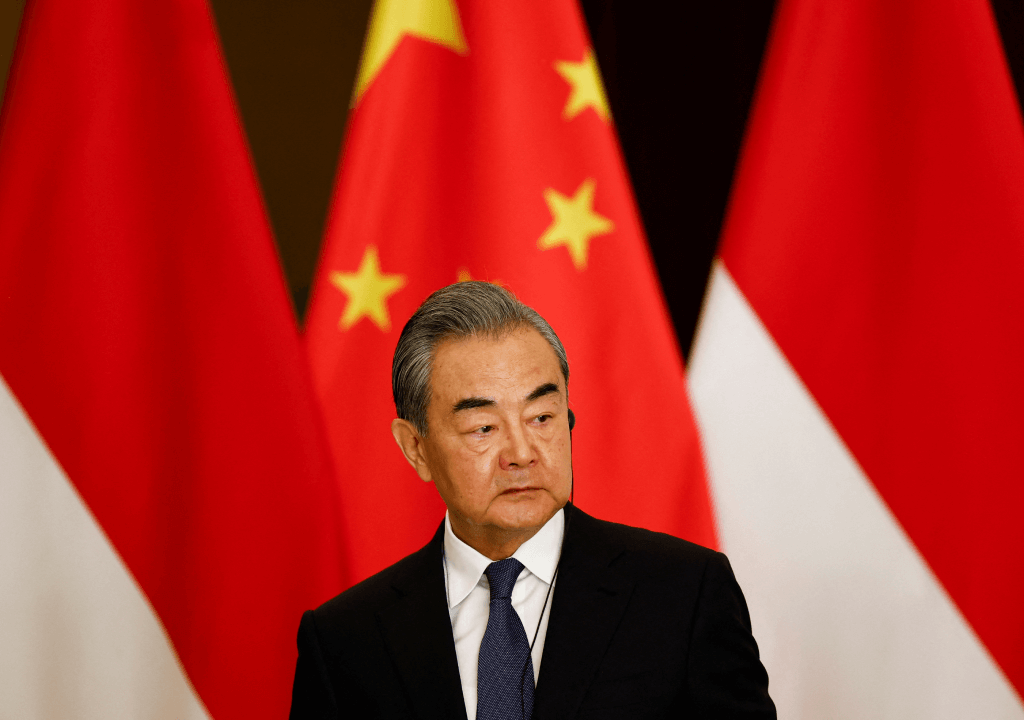As over six months have passed since Hamas attack on Israel and Israel’s ongoing retaliation, we understand some important trends. Firstly, neither Israel nor Hamas currently wishes for a ceasefire. Secondly, the US doesn’t hold much power over Israel. Indeed, Biden has asked several times for a ceasefire in Gaza, though Israel doesn’t seem to obey it. In the latest development, the US has warned that they will stop providing weapons, but Israel seems unfazed. If the United States can’t take action, Europe remains merely an observer. Saudi Arabia and Iran have demonstrated their weakness in international politics. Russia, engaged in another unending war, likely won’t be inclined to talk peace. India appears to be leaning heavily towards Israel. Qatar, the usual Muslim intermediary, has failed in its efforts. So, who is left to conduct mediation talks on the world stage? We’ve overlooked one significant player: China, rising super power.
The Soviet Union, once the second pole, was the biggest supporter of Palestine, but they don’t exist now. After three decades of a power vacuum created by the disintegration of the Soviet Union, now we have a significant contender: the dragon, China. During the time of the power vacuum, many things happened in Palestinian politics. The first was the split in administration between the West Bank and Gaza, which severely weakened Palestine. Sensing a diplomatic opening, Chinese President Xi Jinping is stepping up China’s intervention in the Middle East crisis. Beijing’s primary aim is to facilitate reconciliation between the two primary Palestinian factions: the secular Fatah and the Islamist Hamas. Last week, it hosted talks between these two groups. Palestinian unity is seen by China as the most probable and practical solution for Palestine. If Palestine becomes a recognizable country, they will gain more power, and probably China can lead them to more positions in the UN and other bodies. If China accomplishes this, there is no doubt China will be the winner in the Middle East. There has been actual improvement with China’s mediatory efforts. Musa Abu Marzouk, the head of Hamas’s international relations office, stated in a Sunday interview that he anticipates Fatah and Hamas returning to Beijing soon for a second round of talks. He also disclosed that Hamas had wanted China, Russia, and Turkey to act as co-guarantors of any peace deal between Hamas and Israel, signaling Hamas’s distrust of the US’s inability or unwillingness.
Some analysts perceive China’s engagement as an attempt to supplant the US’s traditional role in between Israel and Palestine. However, China regards its actions as a continuation of the role it played last year in resolving the nine-year diplomatic standoff between Saudi Arabia and Iran. China’s good fortune may be its timing. There is a weak administration currently in the US, and even Japan’s president said last month that the US is in doubt on their own world leader role. In this situation, the initiative made by China is a more practical way to bring about change in Palestine and establish an authorized body as the first step in negotiations with Israel. Both Fatah and Hamas find themselves in difficult situations. Fatah has become significantly unpopular, while Hamas is actively hunted by Israel. Both parties are in need of peace and a resolution. However, there are many hurdles. Just prior to the negotiations, Hamas launched a critique against the new Fatah-led government in the West Bank, asserting that it was not consulted on its formation. Fatah hit back, saying it had not been consulted about Hamas’s attack on Israel. But if they all get into the structure of government and show some unity, they can be presented to Israel for more talks. As China can fix the Saudi Arabia-Iran issue they can fix this also.
The Gaza conflict resulted in a strengthening of China’s pro-Palestinian stance in the Middle East. Within a week of the Hamas attack on 7th October, the Chinese Foreign Minister, Wang Yi, described Israel’s bombardment of civilians in Gaza as actions that “have gone beyond the scope of self-defense” in a call with the Saudi Foreign Minister, Faisal bin Farhan al-Saud. Xi commented on the crisis after the Third Belt and Road Forum in late October. He restated China’s long-standing support for a two-state solution and pushed for the creation of a humanitarian corridor to aid the Gaza Strip. In February, Beijing pressed the International Court of Justice (ICJ) to weigh in on the legality of Israel’s occupation of the Palestinian Territories, which China deemed unlawful. It appears that China is exerting more effort compared to what is being contributed by so-called Muslim allies.
China has been a net importer of oil since 1993, with about half coming from the Middle East. China has become reliant on a region that the US continues to dominate. But as per latest geopolitical happenings, The Middle East now feels the advantage of having an alternative to Washington’s supremacy. Gulf states are heavily investing in China, driven by their desire to free themselves from oil dependence, wean themselves off their over-dependence on the US, and embrace emerging countries, industries, and markets. The US is resisting this trend, for instance, challenging Middle Eastern countries not to invest in Huawei. One of the factors driving Washington’s desire to strike normalization deals with Saudi Arabia is the belief that it can help marginalize Chinese influence in sensitive security and energy sectors. Though, as part of the power game, China now gives hope to Palestine and peace lovers through their efforts.








